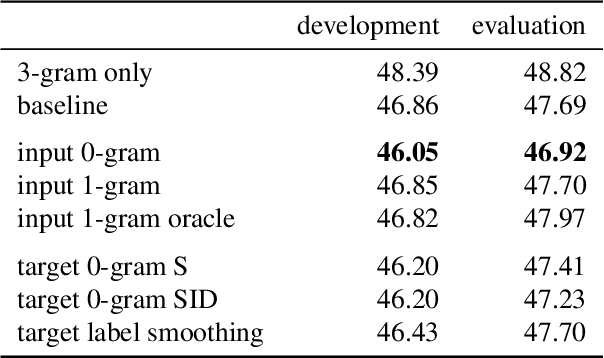Text Augmentation for Language Models in High Error Recognition Scenario
Paper and Code
Nov 11, 2020



We examine the effect of data augmentation for training of language models for speech recognition. We compare augmentation based on global error statistics with one based on per-word unigram statistics of ASR errors and observe that it is better to only pay attention the global substitution, deletion and insertion rates. This simple scheme also performs consistently better than label smoothing and its sampled variants. Additionally, we investigate into the behavior of perplexity estimated on augmented data, but conclude that it gives no better prediction of the final error rate. Our best augmentation scheme increases the absolute WER improvement from second-pass rescoring from 1.1 % to 1.9 % absolute on the CHiMe-6 challenge.
 Add to Chrome
Add to Chrome Add to Firefox
Add to Firefox Add to Edge
Add to Edge